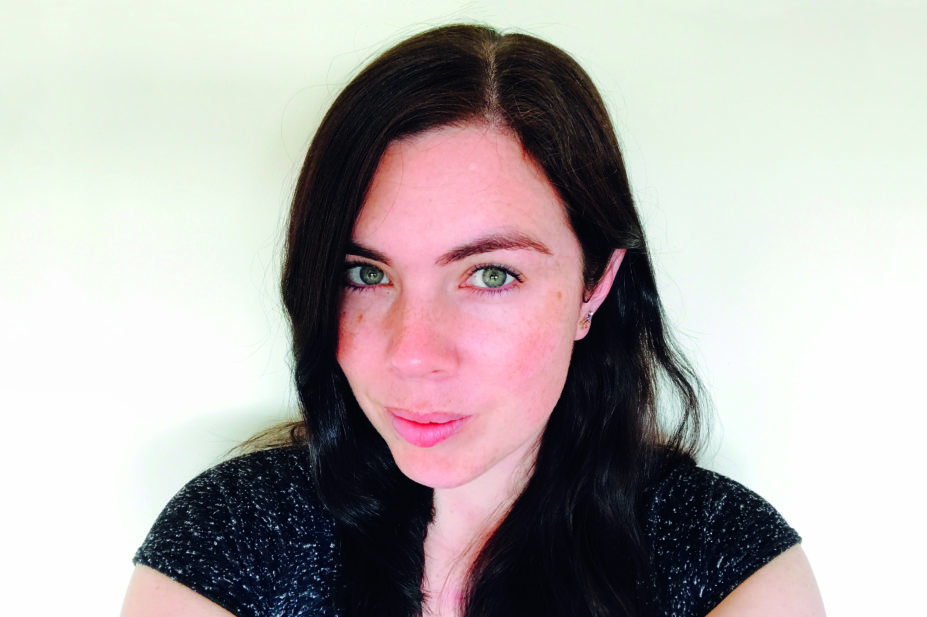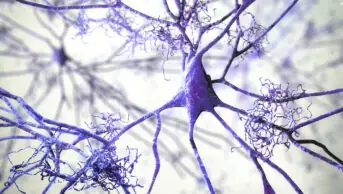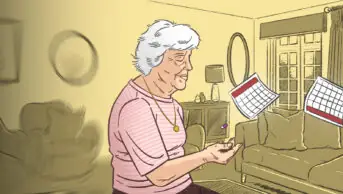
Courtesy of Viv Horton
Viv Horton is an advanced clinical pharmacist (neuroscience) at The James Cook University Hospital, Middlesbrough, South Tees Hospitals NHS Foundation Trust.
Why did you decide to go into hospital pharmacy?
During my degree studies at the University of Nottingham, I undertook summer placements in both hospital and community pharmacy. I enjoyed both environments but developed a passion for hospital pharmacy because of the specialist nature of the work — the focus on patient-centered care in collaboration with a team approach. I completed my preregistration training at South Tees Hospitals NHS Foundation Trust and I was keen to continue working at a tertiary centre as a basic grade pharmacist. I benefited from the rotational band 6 pharmacist programme, gained experience in many specialties and was awarded a clinical diploma.
Why did you become an advanced clinical pharmacist and, in particular, a neuroscience specialist?
At the time, with staffing and the pharmacy service as it was, there was potential to develop the pharmacy service in this specialty, and the opportunity to develop in one specialist role was appealing.
I was already interested in all aspects of neuroscience. And being involved in, and contributing to the care of patients with traumatic brain injury was very rewarding — it was inspiring to watch these patients improve in health and move from the neurosurgical high dependency unit (HDU) to the neurosurgery ward and through to the neurorehabilitation ward. I worked beside the specialist teams and was involved in daily ward rounds, and over time I learnt to interpret the monitoring in the HDU and understand the prescribing rationale in neurosurgery. I also learnt about neurosurgical procedures to gain a better understanding of how medication may be best used. I was then able to advise on the rationalisation of these patients’ prescriptions as they recovered.
As I built relationships and developed my skills, I became an integral part of the neurology ward team. Specialising has allowed me to develop a far deeper understanding of neurological conditions including Parkinson’s, epilepsy, motor neurone disease, myasthenia, multiple sclerosis and conditions requiring intravenous immunoglobulins.
What are your day-to-day responsibilities?
As part of my role as an advanced clinical pharmacist, I lead the pharmacy service for neuroscience at my trust. This role involves managing a small team of pharmacists and pharmacy technicians to deliver our ward-based medicines optimisation services, which cover neurology, neurosurgery, neurorehabilitation, and stroke services, which have become part of the neuroscience directorate. I enjoy working as part of the multidisciplinary team on the neurology ward and participating in daily ward rounds.
As an independent prescriber with a specialist interest in Parkinsonian conditions, I see patients autonomously, both in the movement disorder clinic and in the Parkinson’s Advanced Symptom Unit (PASU). As well as undertaking their clinical assessment, I routinely review medication and communicate with both the patient’s GP and community pharmacy about any changes to medication.
I am involved in writing the trust’s guidelines and regularly attend directorate meetings and produce directorate reports. I also review the monthly pharmacy system reports, advise on cost pressures and make cost-effectiveness recommendations. As a team we continually drive the use of patients’ own medication while they are in hospital, which has led to significant savings.
I also lead the training of junior pharmacists who rotate through our specialty. I have a particular focus on neurology and work closely with the specialist teams in Parkinson’s, epilepsy, motor neurone disease and multiple sclerosis.
What is the most interesting part of your role?
I am often inspired by the level of passion and dedication that I see on a day-to-day basis. I believe the level of care given to patients, who may often have complex care needs and challenging behaviour, is exemplary.
I particularly enjoy working as part of the movement disorder team. Over the years, I have developed consultation skills and become a good listener, which is particularly important for patients who have difficulties in communicating. In the clinic we often need to choose difficult options or interventions. It is rewarding to work with the patient, carer and the rest of the team to improve the patient’s quality of life and reduce strain on the carer.
What is the most challenging part of your current role?
I find it difficult to switch off at times, so I need to be careful about my work–life balance. Time management and prioritisation are skills that I have worked hard to develop. Going for a run in the morning helps to clear my head and helps me plan for the day. I also apply a rhythm to the regular tasks I need to complete, which helps me to organise my time. Sometimes, during busier periods, I end up taking work home, but I try to limit this and make sure I have time blocked out for family and leisure time too.
What achievement are you most proud of?
Honestly, I’m most proud of being a mum!
Professionally, I found completing my prescribing qualification deeply rewarding, especially because I managed to do it while looking after small children. The generosity of the movement disorder team during my prescribing training helped my professional development in Parkinson’s care, and I was lucky enough to take the Parkinson’s Advanced Masterclass, run by the Neurology Academy, which expanded my skills in managing Parkinsonian conditions. I was then able to train other members of the pharmacy team and regional neurology registrars.
Our PASU clinic was set up after we were awarded a grant from the Health Foundation, and we have demonstrated that this innovative clinic has improved patient quality of life and reduced carer strain, while being more cost effective than ‘business as usual’. We were awarded a Patient Safety Award for managing long-term conditions in 2016 and a Parkinson’s Excellence Network Award in March 2017.
What are your career plans for the future?
I hope to further develop my role in neuroscience, particularly within the movement disorder team. At the PASU we hope to increase our links across mental health as we deliver a regional service. We are also looking to further develop the management of bone health.
There are also many prescribing opportunities in the area of neuroscience, but we need to balance this with ensuring delivery of the pharmacy service. I am also interested in undertaking further teaching opportunities.


